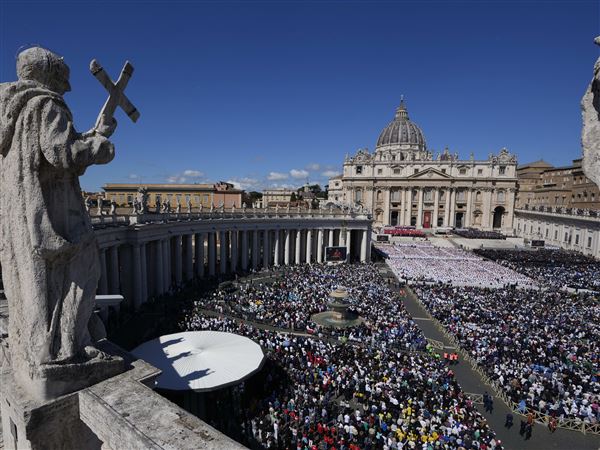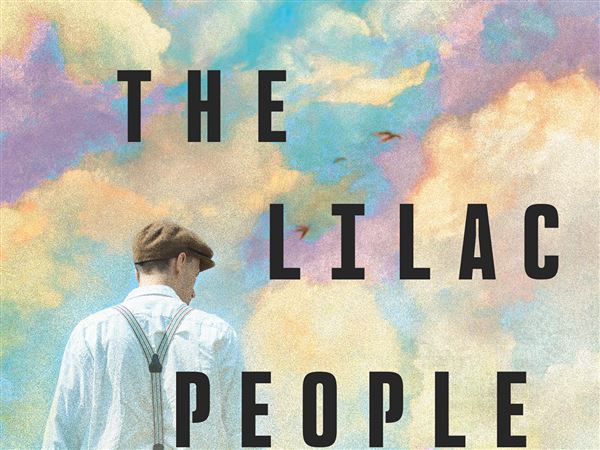Dan Means sells ticket stubs in his Downtown sports memorabilia store, Sports World Specialties.
"Mostly vintage," he said, with prices from $25 to $750.
Stubs from World Series games, Super Bowls, Indianapolis 500 races and even preseason football games are available to interested collectors.
The ticket stubs are physical representations of memories, of games won and lost, of records set and time spent with friends and family, and like many other objects -- photographs, books, compact discs and, yes, even newspapers -- they are starting to disappear in the digital age.
Sports franchises are rapidly moving to digital ticketing as a means of gathering data about customers and generating revenue by collecting fees every time a digital ticket is resold, something not possible with hard-copy tickets, but the movement has the unintended consequence of eliminating a cheap memento for fans and a collector's item for others.
Even as some teams start to introduce fees to nudge fans away from paper tickets -- much as banks have done to shift customers to online banking statements -- some fans are fighting the movement with petitions and Facebook pages aimed to save their souvenirs.
Digital event tickets include a barcode that can be scanned at entry gates and can be downloaded from the Internet, similar to airline tickets. Some fans use their mobile devices to get through the turnstiles; others print the tickets out and bring them to the ballpark.
A complete shift away from paper will not be possible for a while, predicted Bob Bowman, chief executive officer of Major League Baseball Advanced Media, the league's interactive media and Internet company.
"It's been a tradition of 100 years, and some traditions die harder than others," he said.
Many fans still get their tickets at will call, where digital tickets seldom are sold, and if given a choice online, some will opt for the hard-copy ticket. They might like the souvenir, or the ticket might be a gift for someone.
Some teams are charging for hard-copy tickets while offering free digital copies. Others are selling season ticket packages only in digital form.
MLB Advanced Media also owns Tickets.com, which administers ticketing to about 20 of the league's 30 teams. About 75 percent of all single-game tickets purchased through Tickets.com are digital, and Mr. Bowman anticipates that number will grow to 90 percent in the next few years.
Given fans' buying habits, he does not expect to reach 100 percent, at least not in the near future.
When the Los Angeles Dodgers announced plans this offseason to convert all season tickets to digital, some fans started an online petition and a Facebook group called "Bring Back the Paper Ticket" to protest the changes.
Dodgers fan Bill Roebuck, the group's creator, called paper tickets one of baseball's most "enduring traditions." He lamented on the Facebook page what would happen if Dodgers ace Clayton Kershaw pitched a no-hitter and the team's thousands of season-ticket holders couldn't save their tickets as a memento.
He didn't have to wait very long to live through that scenario. Mr. Kershaw, one of the best pitchers in baseball, threw a no-hitter in June. Sensing the occasion, the Dodgers decided to print commemorative tickets and distribute them to season-ticket holders.
The NCAA provides souvenir tickets to fans who attend the Final Four basketball championship, where for the past two years most tickets have been available only in digital form.
The switch to digital helped the NCAA cut down on ticket fraud. It also helped the NCAA generate more than $1 million in incremental revenue, collecting fees every time those tickets were transferred on the secondary market.
"We do know there is a certain element of a souvenir to our event," said NCAA director of ticketing Josh Logan at the Sports Facilities & Franchises and Ticketing Symposium, held last month in Pittsburgh.
Mr. Logan said the NCAA might explore a new revenue stream by selling commemorative tickets in the future, but commemorative tickets don't have the same sentimental value, or actual value, as original artifacts, said David Hunt, president of Hunt Auctions, a sports memorabilia auctioneer based in Exton.
"Things that are made and produced to be collectible do not end up being terribly valuable," said Mr. Hunt, whose company is sponsoring a live auction July 15 at MLB All-Star FanFest, where it has listed a ticket stub for a Pirates game that featured Roberto Clemente's 3,000th hit and his final regular season at-bat. The ticket is expected to sell for more than $2,000.
Clemente died in a plane crash that offseason.
That ticket is rare because its historical significance was not predictable. Commemorative tickets from high-profile events have much less value, especially when they are not used to gain entry to the event.
Mr. Means, who manages the memorabilia shop Downtown, said hard-copy ticket stubs have lost collectible value the past 20 years as ticket designs have become more uniform. With the novelty gone, so is some of the value.
As younger fans grow up, the desire to frame and hang ticket stubs or keep them in a scrapbook also might fade.
Cole Gahagan, executive vice president of client revenue at Ticketmaster North America, said he believes it's a misconception that the days of the paper ticket will go away completely.
People can still print photographs, but most are satisfied to keep them stored on their computer or mobile phone. Mr. Gahagan said teams are starting to develop mobile apps that give fans access to a digital scrapbook, where they can post pictures, videos and digital ticket stubs. MLB Advanced Media developed just that type of feature with its MyTickets Mobile platform as part of its At the Ballpark mobile app.
"You at least are potentially interested in something that brings you back to that time period," Mr. Hunt said.
Michael Sanserino: msanserino@post-gazette.com, 412-263-1969 or on Twitter @msanserino.
First Published: July 5, 2014, 3:58 a.m.


















